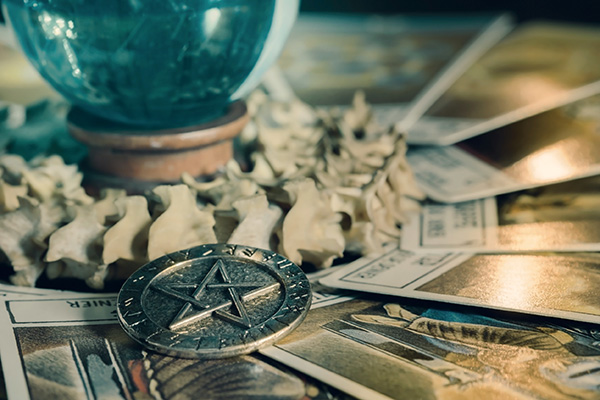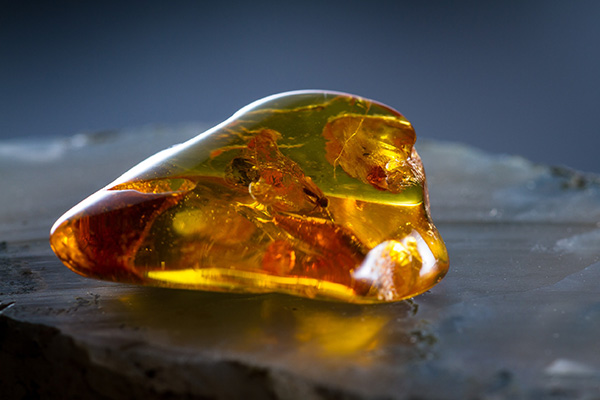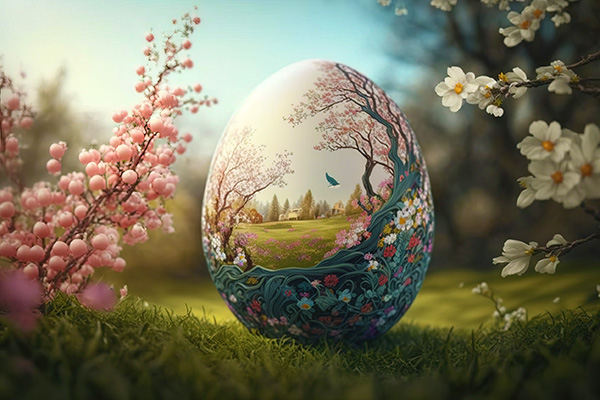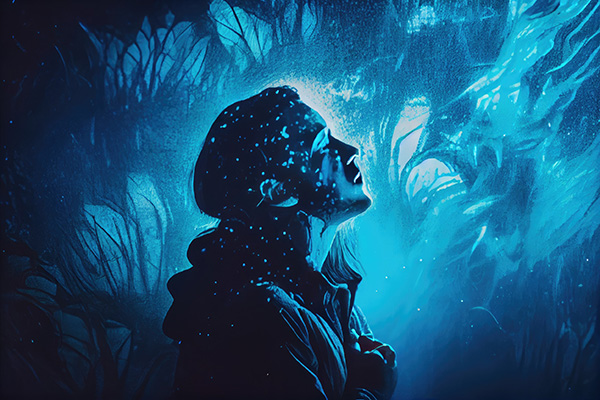ancient greece
The True Spiritual Meaning Of The Pentagram
 Perhaps no other spiritual or religious icon is as misunderstood as the pentagram, or pentacle. The true symbolism of the pentagram, a five-pointed star often surrounded by a circle, is commonly misrepresented.
Perhaps no other spiritual or religious icon is as misunderstood as the pentagram, or pentacle. The true symbolism of the pentagram, a five-pointed star often surrounded by a circle, is commonly misrepresented.
Contrary to popular misconceptions that associate it with darkness, evil, or Satanism, the pentagram has multiple meanings within various spiritual and religious traditions, most notably within Paganism and modern Wicca.
The pentagram has been a spiritual symbol of significance for millennia, long before its association with modern religious movements.
Historically, it has been used by cultures around the world, often to represent celestial bodies, principles of harmony, or mystical concepts. Its use first appeared in ancient Greece and Mesopotamia around the 1st millennium BC.
It is not widely known that there are significant historical connections between the pentagram and Christianity. Prior to the widespread use of the cross, the pentagram was a popular symbol to adorn the jewelry and amulets of early Christians, often alongside an “X” or a phoenix. This symbol was associated with the five wounds of Christ and also represented the concept of Alpha and Omega united, as the star could be drawn in one continuous movement of the pen.
In contemporary contexts, particularly within Wicca and related neo-pagan belief systems, the pentacle has positive connotations. It’s seen as a symbol of protection, spirituality, and the interconnectedness of the elements. Each point of the star represents an aspect of balance, holistic existence, conscious living, and the cyclical nature of life.
The Vibrational Alchemy Of Crystal-Infused Water
 I love using crystal water as part of my spiritual practice. Crystal-infused water is an alchemical elixir for harmonizing the body, mind, and spirit.
I love using crystal water as part of my spiritual practice. Crystal-infused water is an alchemical elixir for harmonizing the body, mind, and spirit.
Using the vibrational properties of crystals, this practice involves infusing water with the subtle energies emitted by carefully selected crystals and gemstones. Drinking crystal water is a powerful healing tool and wonderful for maintaining holistic balance and inner harmony.
I like to drink crystal water only once a week. I do not want to interfere with the body’s energetics every day. This is also a great way to get more water into your body and hydrate.
The use of crystals for healing and spiritual purposes dates back thousands of years, originating in the ancient civilizations, such as Egypt, Greece and China. These cultures believed in the energetic properties of crystals and used them for various purposes, including healing, protection, and spiritual connection.
While there is limited historical documentation that specifically mentions crystal-infused water in ancient traditions, it is evident that the ancients held a deep reverence for both crystals and water in their spiritual, healing, and ceremonial practices. Over time, as the awareness of the metaphysical properties of crystals evolved in modern times, the practice of immersing crystals in water for drinking emerged.
The Mystical Properties Of Ancient Amber
 Crystals, gemstones, and incense have been widely used in spiritual, esoteric, and healing practices throughout the ages and continue to be popular today.
Crystals, gemstones, and incense have been widely used in spiritual, esoteric, and healing practices throughout the ages and continue to be popular today.
But there is another type of natural material that does not enjoy the same level of widespread recognition and popularity, despite its unique metaphysical properties and significance in various cultures and mystical traditions.
Resins are less well known and used by modern practitioners. I find that many people are unfamiliar with the various types of resins available and their metaphysical properties.
Compared to crystals, gemstones, and incense, which have gained widespread popularity in recent years, especially through social media and the Internet, resins have received less attention and exposure.
As a result, people may be less likely to encounter resins in their exploration of metaphysical tools and practices.
I also find that people who are at least somewhat familiar with resins tend to associate them with their use as incense. Resins such as frankincense, myrrh, copal, and others are often burned as incense to purify spaces, objects, and individuals. The smoke cleanses negative energies, purifies the aura, and creates a sacred atmosphere for rituals and ceremonies. Continue reading
Revitalize Your Life With A Spiritual Spring Clean
 The spring season is upon us and with it comes a fresh energy of renewal and rebirth.
The spring season is upon us and with it comes a fresh energy of renewal and rebirth.
Very often at this time of year people do a “spring cleaning” of their homes and workspaces, and for good reason. On a spiritual level, we have been moved by the powerful influence of this vibrant seasonal energy since the beginning of time.
As the light of the sun returns and the air begins to warm, we feel on a deep level the cycle of rebirth and the return of fertility to the earth that sustains us, just as our ancestors did through the ages. It inspires us to make room in our lives for this invigorating energy of renewal.
The ancients held the spring in high regard, attributing significant spiritual and symbolic meanings to the season. Although beliefs varied across different cultures, they mostly centered around themes of renewal, fertility, rebirth, and celebration.
In Ancient Egypt, for example, spring was closely associated with the annual flooding of the Nile, which brought fertile silt to the fields. The Egyptians celebrated the festival of Sham el-Nessim, marking the beginning of spring, which was believed to bring rejuvenation and health.
Find Your Rainbow In Troubled Times
 There are days when it seems like the storm winds and rain in your life will never stop. Those days when your mind is filled with shadows and your heart is heavy. When a grief or a broken heart seems like a never-ending wound.
There are days when it seems like the storm winds and rain in your life will never stop. Those days when your mind is filled with shadows and your heart is heavy. When a grief or a broken heart seems like a never-ending wound.
But trust me. One day soon you will walk out into the sunshine and see another beautiful rainbow! You will look at the colors of a perfect rainbow after a destructive storm of heavy rains and gasping winds, and you will know that all is well.
The storm may sometimes seem never-ending, but we always find a rainbow of promise on the other side. Then you will see the majesty of the spectrum of colors and the great arc that delights the sky. And if you follow that wondrous curve carefully, you may even find the pot of gold at its end!
In that perfect moment, you will forget the sadness and despair you felt before. The heaviness in your heart will be gone and you will be reminded that nothing is lost forever. The rainbows of life will always bring new moments, a new day, a new beginning. This is Spirit’s promise to us.
Since the dawn of time, rainbows have captured the imagination and beliefs of people in different cultures as a divine symbol of hope, healing, protection and rebirth.
The Spiritual And Therapeutic Energies Of Blue
 In metaphysics, colors are associated with a specific energy signature or vibrational frequency that affects our aura as well as the energy fields in our surroundings. The energy signature of blue carries certain vibrational qualities that have both spiritual and therapeutic significance.
In metaphysics, colors are associated with a specific energy signature or vibrational frequency that affects our aura as well as the energy fields in our surroundings. The energy signature of blue carries certain vibrational qualities that have both spiritual and therapeutic significance.
In spiritual and religious contexts, this color is often associated with the divine and sacred, representing a connection to the heavens and the spiritual realm. The color blue also holds a significant place in various mythologies around the world.
From its celestial associations in Greek mythology, to its divine symbolism in Norse mythology, to its mystical significance in Celtic mythology, blue represents the vastness of the cosmos, the power of divine forces, and the enduring nature of wisdom and knowledge.
Blue is also traditionally associated with spiritual healing and purification and is considered a protective color. It is believed to have a calming and cleansing effect on the mind and spirit. It is also said to ward off negative energies and provide a shield against spiritual harm.
Beyond its spiritual symbolism, blue is considered an important color in color therapy for its various therapeutic effects that promote physical, emotional and spiritual well-being.
The True Value Of The Psychic Pathfinder
 Psychics, mediums, channelers, and prophets have been around as wayshowers or pathfinders since the beginning of time, offering insight, guidance, and predictions to those seeking divine answers to their most pressing questions.
Psychics, mediums, channelers, and prophets have been around as wayshowers or pathfinders since the beginning of time, offering insight, guidance, and predictions to those seeking divine answers to their most pressing questions.
The earliest historical records of people with psychic abilities can be traced back to ancient Egypt, Greece, and China.
One of the most famous psychics of all time was the Oracle of Delphi in ancient Greece. She was a priestess at the Sanctuary of Apollo in Delphi and was known for her ability to channel prophecies. She would enter a trance-like state and utter divine messages and predictions. These prophecies were often sought by kings, generals, and wealthy community leaders seeking guidance or insight.
In ancient Egypt, pharaohs consulted psychic oracles and mediums for advice on matters of state and personal affairs. They also employed soothsayers who practiced various rituals and divination techniques to access divine wisdom and foresight.
In ancient China, divination and psychic practices were deeply embedded in the culture. Oracle bones, inscribed with symbols and used for divination, have been unearthed at ancient sites. Soothsayers, known as fangshi, offered their services to those seeking guidance and insight.